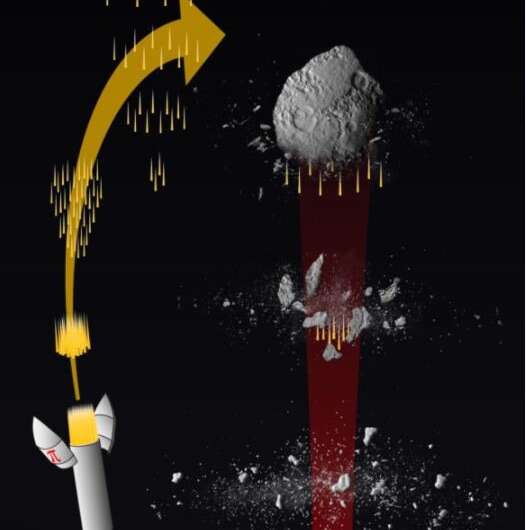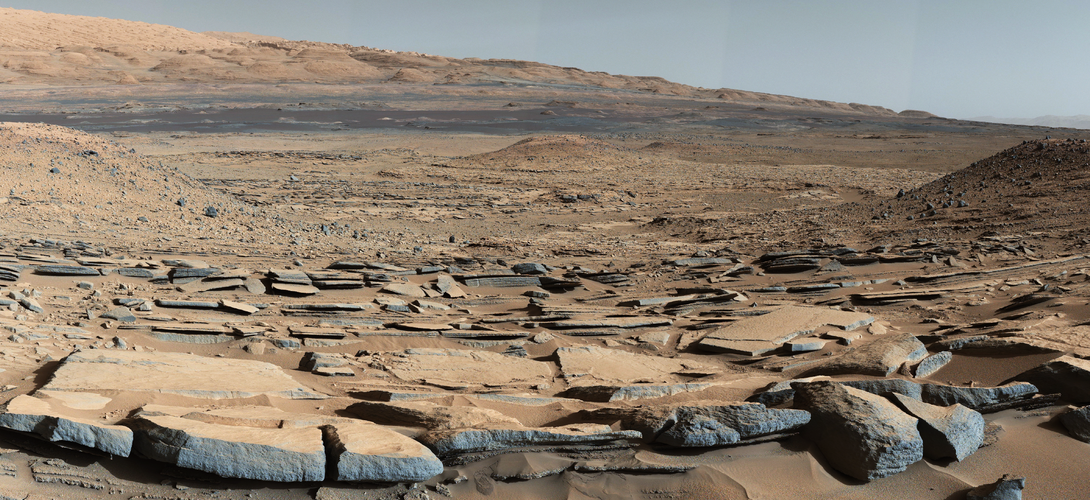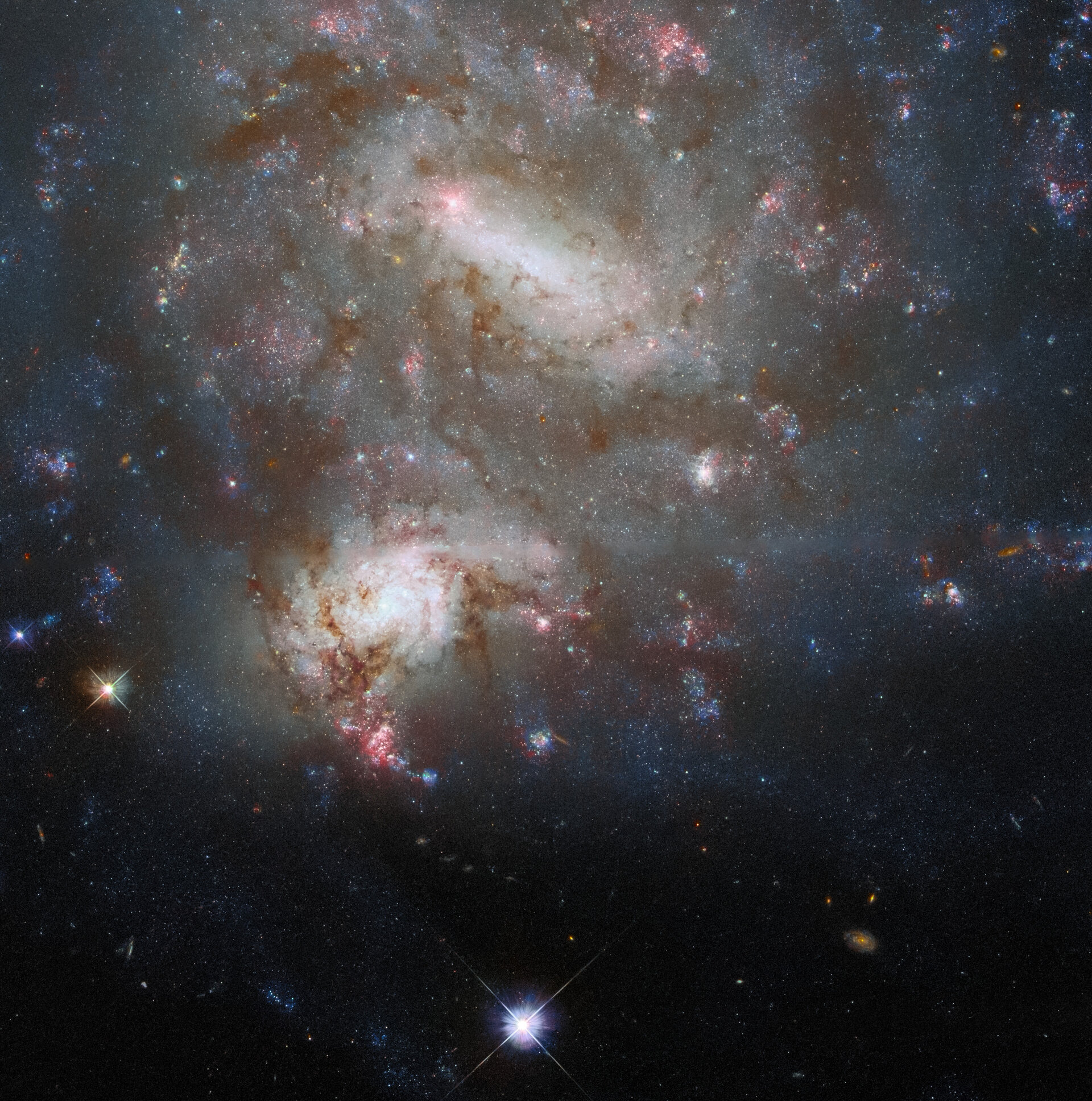
Copernical Team
Last-minute defense against an asteroid that could obliterate it before impact

Gazing at the night sky can evoke a sense of wonder regarding humanity's place in the universe. But that's not all it can evoke. If you're knowledgeable about asteroid strikes like the one that wiped out the dinosaurs, then even a fleeting meteorite can nudge aside your enjoyable sense of wonder.
Moon and Mars superoxides for oxygen farming

The dusty faces of the Moon and Mars conceal unseen hazards for future explorers. Areas of highly oxidising material could be sufficiently reactive that they would produce chemical burns on astronauts’ unprotected skin or lungs. Taking inspiration from a pioneering search for Martian life, a Greek team is developing a device to detect these ‘reactive oxygen species’ – as well as harvest sufficient oxygen from them to keep astronauts breathing indefinitely.
Failure to launch: War scuppers Russia-West space collaboration
 Russia's invasion of Ukraine has had repercussions not just around the world but beyond it, bringing to a grinding halt joint space projects between Moscow and the West that began in the aftermath of the Cold War.
When the head of Russian space agency Roscosmos Dmitry Rogozin announced on Thursday that Russia would stop supplying the United States with rocket engines, his message was blunt:
Russia's invasion of Ukraine has had repercussions not just around the world but beyond it, bringing to a grinding halt joint space projects between Moscow and the West that began in the aftermath of the Cold War.
When the head of Russian space agency Roscosmos Dmitry Rogozin announced on Thursday that Russia would stop supplying the United States with rocket engines, his message was blunt: Week in images: 28 February - 4 March 2022

Week in images: 28 February - 4 March 2022
Discover our week through the lens
The International Space Station may become a casualty of the Russian war in Ukraine

Will the Russian war on Ukraine lead to the demise of the International Space Station (ISS)?
Roscosmos, the Russian space agency, says Western sanctions resulting from its invasion of Ukraine have led Russia to question its commitment to the space station beyond 2024—news that casts doubt on the program's future. "We're in an unknown situation here," Scott Pace, a former executive secretary of the National Space Council, told The Wall Street Journal.
The space station is currently orbiting Earth at a speed of five miles per second with a crew that includes Russians and Americans. It has been a refuge from international conflict since its construction in 1998, says Mai'a Cross, the Edward W. Brooke Professor of Political Science and International Affairs at Northeastern. But the reverberations of the new war may extend beyond the atmosphere.
"It is impossible for this space station to exist without teamwork," says Cross, who is serving as guest editor of a special edition of The Hague Journal of Diplomacy that will be focused on space diplomacy. "Many people have said it is the greatest, biggest, and most expensive example of civil cooperation that has existed.
Seeking out Moon and Mars superoxides for oxygen farming

The dusty faces of the Moon and Mars conceal unseen hazards for future explorers. Areas of highly oxidising material could be sufficiently reactive that they would produce chemical burns on astronauts’ unprotected skin or lungs. Taking inspiration from a pioneering search for Martian life, a Greek team is developing a device to detect these ‘reactive oxygen species’ – as well as harvest sufficient oxygen from them to keep astronauts breathing indefinitely.
Earth from Space: Snowy Pyrenees

Today, the Copernicus Sentinel-2 mission takes us over the Pyrenees Mountains in southwest Europe. The mountain range forms a natural border between France and Spain with the small, landlocked country of Andorra sandwiched in between.
China launches new land-observation satellite
 China on Sunday morning launched a Long March-4C rocket to place a new land-observation satellite in space.
The rocket blasted off at 7:44 a.m. (Beijing Time) from the Jiuquan Satellite Launch Center in northwest China and soon sent the L-SAR 01B satellite into its preset orbit.
The satellite will be used to monitor Earth's geological environment, landslides and earthquakes.
Th
China on Sunday morning launched a Long March-4C rocket to place a new land-observation satellite in space.
The rocket blasted off at 7:44 a.m. (Beijing Time) from the Jiuquan Satellite Launch Center in northwest China and soon sent the L-SAR 01B satellite into its preset orbit.
The satellite will be used to monitor Earth's geological environment, landslides and earthquakes.
Th Kendall details 'Seven Operational Imperatives' and how they forge the Future Force
 Secretary of the Air Force Frank Kendall outlined his increasingly urgent roadmap March 3 for successfully bringing about the new technologies, thinking, and cultures the Air and Space Forces must have to deter and, if necessary, defeat modern day adversaries.
The particulars of Kendall's 30-minute keynote to Air Force Association's Warfare Symposium weren't necessarily new since they echo
Secretary of the Air Force Frank Kendall outlined his increasingly urgent roadmap March 3 for successfully bringing about the new technologies, thinking, and cultures the Air and Space Forces must have to deter and, if necessary, defeat modern day adversaries.
The particulars of Kendall's 30-minute keynote to Air Force Association's Warfare Symposium weren't necessarily new since they echo Repellent wrap shown to shed all viruses and bacteria
 New research by the inventors of a promising pathogen-repellent wrap has confirmed that it sheds not only bacteria, as previously proven, but also viruses, boosting its potential usefulness for interrupting the transmission of infections.
The new wrap, designed to protect against contamination on high-touch surfaces such as doorhandles and railings, is now moving toward scaled-up productio
New research by the inventors of a promising pathogen-repellent wrap has confirmed that it sheds not only bacteria, as previously proven, but also viruses, boosting its potential usefulness for interrupting the transmission of infections.
The new wrap, designed to protect against contamination on high-touch surfaces such as doorhandles and railings, is now moving toward scaled-up productio 